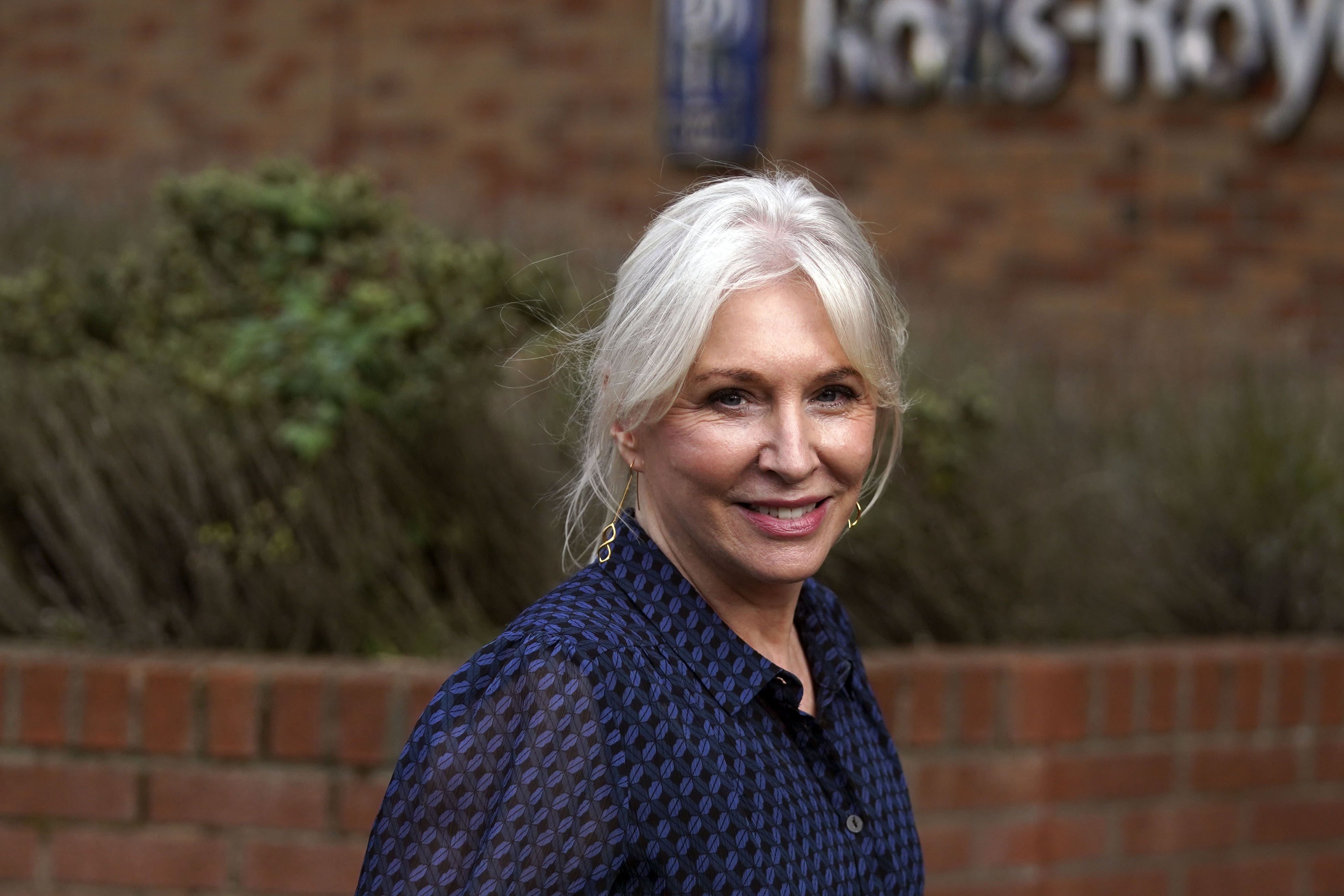Now Nadine Dorries says she will stand down at the next election – but what does it mean for the party?
It may mean some brilliant future leader could arrive, unnoticed, stepping over their fallen comrades and being part of the rebuild, writes Sean O’Grady


Nadine Dorries has become the latest of 19 Conservative MPs to declare that they are voluntarily standing down at the next general election. What’s going on?
So, why is Nadine Dorries going?
She says it’s because the Tories dumped Boris Johnson (who she thinks is the Messiah, rather than a very naughty boy), meaning that, in her view, her party is doomed at the next election: “It’s 24 points behind. And that, my friends, could be described as terminal.” A return to cabinet for Dorries under Rishi Sunak seems unlikely, as does a Johnson comeback. There are also as-yet-unsubstantiated suggestions that her Mid Bedfordshire seat, far safer than Johnson’s in Uxbridge and South Ruislip, is being vacated so that Johnson can make a “chicken run” and become the local candidate.
What does it tell us about the state of the Conservative Party?
As Dorries herself says, it doesn’t seem likely to be in government for much longer. The latest polls suggest that the Tories could be pushed into third place in the Commons after Labour and the SNP at the next general election, and thus won’t even form the official opposition. A long period in the wilderness seems to beckon. So a number of them have decided not to bother standing next time, and are liberating themselves to pursue fresh careers – Dorries has her novel-writing and a new show on Talk TV.
Aren’t lots of Labour MPs leaving too?
Yes, but they tend to be rather older and to have served for much longer in the Commons than their counterparts. Their retirements are much more “normal”, by comparison. Analysis by The Spectator suggests that the average age of a Labour retiree is about 70, with about 20 years’ service in the Commons; for a Tory it’s about 52, with five years’ service.
There is of course much variation. Some have little future in any case, such as Matt Hancock (who is 44, and technically now an independent after losing the whip), and have done their time in cabinet, like Dorries (65) or Sajid Javid (52). Others would probably have hung around if the Tories looked like winners and there was some hope of ministerial office or even chairing a select committee (such roles are usually allocated to members of the governing party).
Outstanding examples of youthful retirees include Dehenna Davison (29, and doomed in her red-wall seat), Chloe Smith (40), and William Wragg (34 and vulnerable to a Lib Dem challenge in Hazel Grove). Others, such as Jo Gideon (70) and Mike Penning (65) are retiring at a more conventional age. Charles Walker (62), outspoken, honest and eloquent, has simply had enough: “I haven’t the stomach for it.”
What will this do to the Conservative Party?
It’s another huge churn in the composition of the parliamentary Conservative Party. It comes after many MPs lost their seats in the Jeremy Corbyn-era surge of 2017, or in the purge of pro-EU members, many quite senior (such as Ken Clarke and Nicholas Soames), in 2019. Many are among the influx (and now soon-to-be exodus) of Eurosceptic red-wall populist-nationalists who arrived in their place. After the next election, there will be remarkably few left who have served even under David Cameron – and, one way or another, there’ll be a serious loss of parliamentary and governmental experience.
But if the Tories suffer the kind of swing against them suggested by recent polls, the constitution, and leadership, of the rump party will be drawn from an almost random mix of ages, outlooks and abilities among the few dozen still standing. There may be a very real risk that the party will lose critical mass, certainly in the Commons, and drift into irrelevance by the time the 10th anniversary of the Brexit referendum comes around in 2026.
The much-denuded band of MPs will find it more difficult to resist calls from the grassroots for “democratic control”, and will lose their say over leadership elections and policy. The party might then conceivably split, with a rightist faction seeking an alliance with Reform UK, Nigel Farage, the fragments of Ukip, and various other micro-groups, plus a special relationship with the Northern Irish DUP (which would boost their chance of remaining the official Commons opposition group in a total rout).
Is there any good news for the Tories?
Yes. There will be some promising vacancies in very safe Tory seats, and some brilliant future leader might arrive, unnoticed, stepping over their fallen comrades and being part of the rebuild. This, after all, is what happened when Tony Blair and Gordon Brown arrived in the wake of a Labour disaster in 1983, while Theresa May was one of the brighter talents to make it past the New Labour wave in 1997. So watch out, among the Tory class of 2024, for a young prospective Tory premier for the 2040s. They might even be pro-Europe.





Join our commenting forum
Join thought-provoking conversations, follow other Independent readers and see their replies
Comments